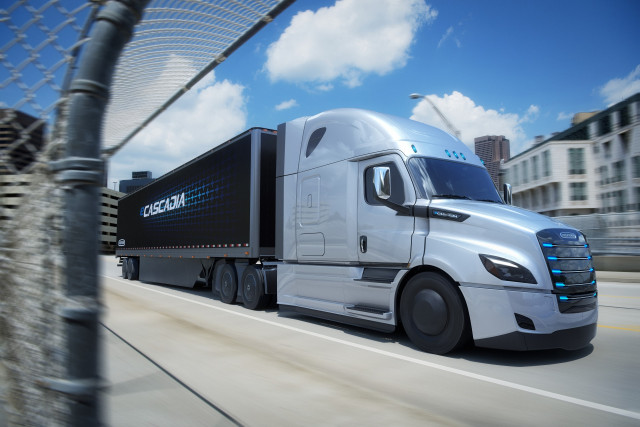Follow Bengt

Bill Gates
Electric cars may be seen by some as part of a seemingly unstoppable, powerful technological wave that will disrupt not just the auto industry but most other forms of transportation.
Don’t count on Bill Gates as one of those bright-eyed EV cheerleaders; on the other hand, don’t dismiss him as someone who doesn’t want to see transportation remade in a dramatically carbon-reduced form.
DON’T MISS: Iron Man 2 reunion: Musk friend Larry Ellison named to Tesla board
Gates, who was recently interviewed by tech reviewer Marques Brownlee, takes (as on many things) a pragmatic view with respect to how battery-electric tech will transform transportation. The Microsoft co-founder, turned humanitarian and philanthropist, called Tesla “an amazing product,” and noted that while it’s catching on it’s still a very small percentage of the market—and the loss of the $7,500 federal tax credit is making it tougher.
He sees other automakers getting more involved because of the California regulations that cover a significant portion of the U.S., and says that “there’ll be a lot of really great electric cars to choose from.”
The video didn’t feature Gates’ answer to Brownlee’s question about whether he had gone electric or not.

Freightliner eCascadia electric semi-truck
While electric power may soon catch on for cars, Gates prognosticates that trucks may be more of a reach: “Eventually batteries might work for a truck, but it’s a far more difficult problem because the weight is a lot higher there.”
CHECK OUT: Bill Gates Backs EcoMotors’ New OPOC Engine With $23.5 Million Investment
For the transportation sector as a whole, he pointed to the wide range of innovations we’re going to need. And he refers to an essential relationship that we often note here at Green Car Reports—that electric vehicles are only as clean as the energy source used to generate the electricity used to charge them.
The electricity grid remains dramatically different regionally in the U.S., but on a national basis, according to data updated by the Union of Concerned Scientists last year, the average electric car now produces the equivalent greenhouse-gas emissions to a gasoline vehicle that achieves 80 mpg. Further, 75 percent of Americans now live in areas where the average EV has lower carbon dioxide emissions than a gas car that gets 50 mpg—although in some regions the other “criteria emissions,” from coal plants in particular, continue to be an issue.
READ MORE: From Apple To Tesla: Woz Follows The Trend, Buys Model S
A report last year from Bloomberg New Energy Finance projected that 50 percent of new cars, worldwide, would be electric, and that renewable solar and wind will generate half of the world’s electricity by 2050—enabled by more affordable batteries and energy storage. BNEF anticipated that the share of renewable sources will be higher in China and India than in the U.S.
That won’t be enough to meet global climate targets. But with some help from big-picture innovators and problem-solvers like Gates, we might get a lot closer.